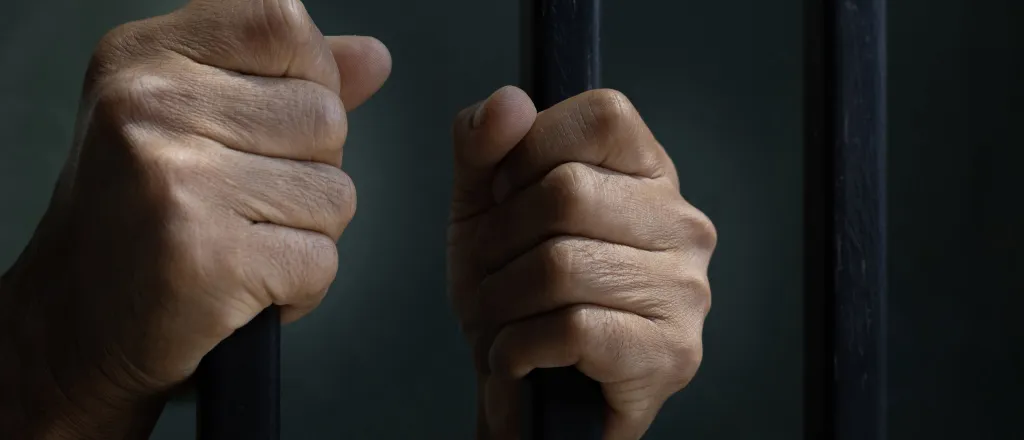
Colorado prisons get funding for more beds even though they’re required to reduce their population
© Akarawut Lohacharoenvanich - iStock-1436012592
The Colorado Legislature’s Joint Budget Committee this week approved on a 4-2 vote a $2.8 million supplemental budget request from the Colorado Department of Corrections to add 153 more private prison beds.
The additional funding will go to the department even though it is also required to make an extra effort to reduce its inmate population. The provisions of a 2018 law in August were triggered for the first time after the state prisons’ vacancy rate had been below 3 percent for more than 30 consecutive days. Those conditions under the law require the department to take steps to reduce the incarcerated population.
Criminal justice reform advocates as well as Democratic leaders of both the state House and Senate judiciary committees wrote to the Joint Budget Committee earlier this month urging members to vote against the DOC’s budget request, citing the department’s limited efforts to efficiently reduce the prison population as the 2018 law requires.

© fotoguy22 - iStock - 1468912821
The advocate letter, led by the Colorado Criminal Justice Reform Coalition and signed by 72 other organizations that make up the No More Prisons coalition, said the budget request is based on a projected increase in the male prison population but “ignores DOC’s own role in driving prison bed demand.”
“Before funding more beds, there should be scrutiny of whether DOC is doing all it can within its control to reduce demand for more prison beds,” the letter says.
Christie Donner, executive director of the CCJRC, said the lawmakers failed “to ask the harder questions” about the department’s population management efforts, noting that there have been several recent state audits that found the department could implement efficiencies and better practices for its budget and security classification system.
“Our whole point is, hold the department to a higher standard of performance instead of just giving them more beds,” Donner said. “The Department of Corrections is in this weird situation where the worse they do, the more money they get.”
The letter CCJRC led calls for an independent audit of DOC policies around transitioning people in custody to parole and back into their communities. Donner said that’s where she sees “a lot of the breakdown and bogginess” in the department. For example, some prisoners will go to a parole board hearing before they have an approved parole plan.
Donner also said that the department’s funding for programming does not automatically increase as the population increases — so the more people there are in custody, the less capacity the department has to offer programming.
The Department of Corrections is in this weird situation where the worse they do, the more money they get.
The Judiciary Committee letter said the JBC should deny the budget request because the prison population management measures should be given more time to work before the state spends unbudgeted tax dollars on more prison beds, “especially in the context of the state’s present, severe fiscal constraints.”

© zimmytws - iStock-511889079
The committee’s letter also said DOC should better use community corrections beds and reform its classification system, because the vacancies in lower security beds are much higher than others and could be better used.
“Approval of yet another supplemental request for more beds under the existing methodologies amounts to doubling down on admittedly failed practices,” the letter says.
Justin Brakke, a legislative budget and policy analyst, told the JBC Monday that the DOC could use the newly funded beds to address the backlog of people sentenced to prison who are held in county jails. He said the state budgets for just over 250 people to be temporarily held in county jails, but the backlog is closer to 500 people right now.
DOC spokesperson Alondra Gonzalez-Garcia said the supplemental funding “complements” its use of prison population management measures to maximize capacity and “maintain safe, secure, and appropriately staffed bed space” amid the growing prison population.
“The Colorado Department of Corrections has a dual responsibility: to effectively manage our current population using all available tools, including population management measures, and to ensure we have the capacity to safely house all individuals sentenced to our custody by the courts,” Gonzalez-Garcia said in a statement.
Members of the JBC were in agreement that they do not want to see the department use the new beds to artificially inflate vacancy rates, and that any additional funding requests related to beds would be denied if they are not used to reduce the jail backlog. Senator Jeff Bridges, an Arapahoe County Democrat, Representative Shannon Bird, a Westminster Democrat, Senator Barbara Kirkmeyer, a Weld County Republican, and Representative Rick Taggart, a Grand Junction Republican, voted in support of the request, while Senator Judy Amanile, a Boulder Democrat, and Representative Emily Sirota, a Denver Democrat, voted against it.

© Daniel Tamas Mehes - iStock-1992275198
Amabile said she doesn’t want to “just keep approving more beds” because that means there is “no pressure on the system to actually make the reforms that need to be made.” She said she doesn’t want “dangerous people” to be released from custody, but that the state has many in custody who do not pose a risk to the public, and she wants to see progress on releasing them.
“I want us to be smart about public safety, because the thing that will make us the safest is making sure that we are rehabilitating people, that we are doing everything we can to get the people who are going to be released ready to be released and setting them up for success,” Amabile said.
People in custody who are older and sick cost the state more money as it has to pay for their health care, Amabile said, and moving them into nursing homes where they could be covered by Medicaid or Medicare would save the state money.
The waitlist for the state’s sex offender treatment program, which is required for some people with indeterminate sentences to be eligible for parole, has a long backlog too, Amabile said, and people are still in prison after they are eligible for parole just because they have not received the treatment. The state is subject to a class action lawsuitbecause of peoples’ inability to access the required treatment program.
Technical parole violations have also significantly increased the prison population, and Amabile said there may be better options to address those violations instead of automatically sending someone back to prison. Donner said parole revocation is the largest driver of the growing prison population.
Colorado is in an increasingly tight budget environment due to rising program costs and a slowing economy, as well as the federal tax cut and spending bill Congress passed earlier this year that reduced income tax revenue in the state. Supplemental funding approved by the JBC comes from the state’s reserves, or savings, and will need to be accounted for when the state prepares its budget next year, potentially affecting other state funding for programs like Medicaid and K-12 education, Amabile said.
In the budget for the current fiscal year, state legislators originally reduced the number of beds in the DOC by 300, but the department asked for more in a June supplemental request and then again in September. Donner said she anticipates the department will continue to request supplemental funding for more beds and in the next fiscal year’s budget too, so it will be “a big issue” in the 2026 legislative session.

















